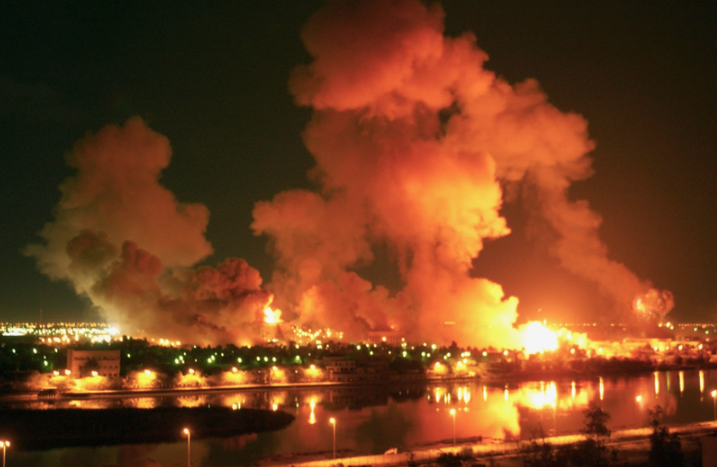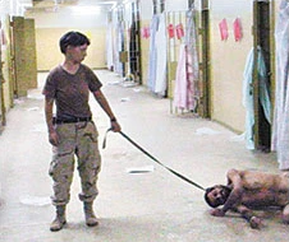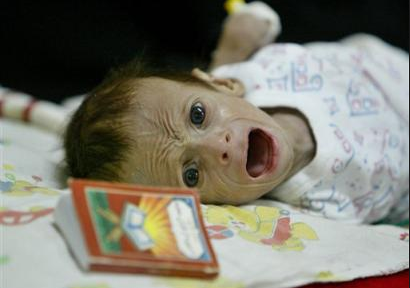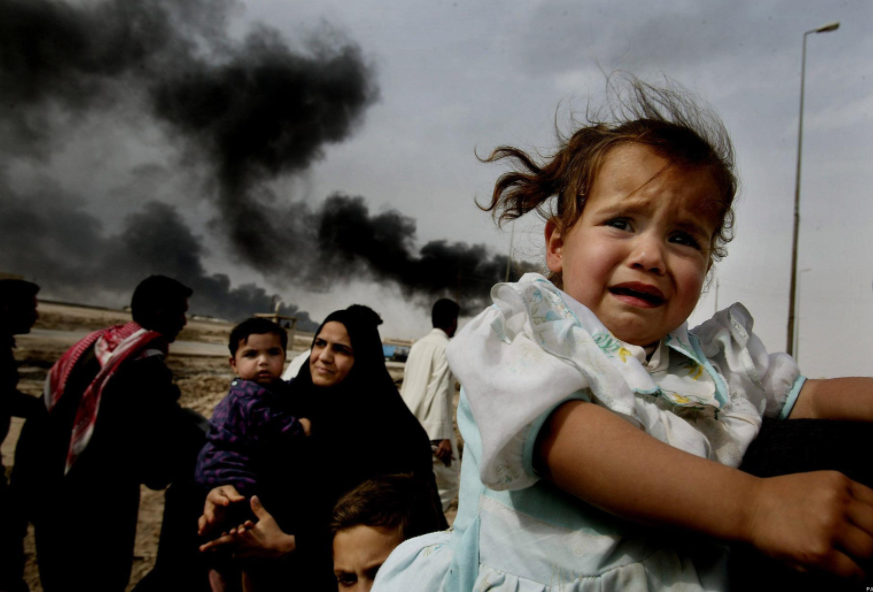
Their questions were never free from prepackaged assumptions. Pro-war interrogators sought confirmation of their firmly held belief that the war was necessary. They wanted me to satisfy their fantasy that young boys clad in uniforms saved primitive Iraq from its demonic dictatorship. They saluted their troops as saviors of the 'third', 'uncivilized' world, and wanted me to subserviently concur.
On the other hand, there are anti-war activists, who stormed the streets one month before the war, calling on politicians to prevent it -- to save young men from entering a war they did not understand or need to fight. They hoped I would assure them that before 2003, Iraqis were fine and had everything under control.
Both camps seek simple answers to validate concrete ideas and beliefs, and misconceptions of Iraq, my country. For these questions, there cannot be a one-size-fits-all answer.
During these years, bombs rained down on Iraqi people with unabated ferocity. Even after Iraq withdrew from Kuwait, Iraqis -- as far as the actions of the international community exposed -- remained a threat, needing to be kept in line, by the worst means imaginable. America starved, maimed, and shamed my people, through no fault of their own.
The world decided that what Iraq needed was democracy; American flavored. They prepared their bull, and directed it toward our China shop. Operation Democracy started.
During the first hours of Thursday, March 20th 2003, I woke up to the repetitive melody of distant bombing, that drifted closer and closer towards us. I went downstairs. One of the civil defense tips we learned from the Gulf War, was to stay away from the upper floors.
Security procedures aside, I wanted to seek refuge in my parents room, the way I did in 1991. With every step I took, the sound of bombing grew stronger. My Mom had just finished praying and Dad was awake. I turned to him for confirmation that the war had begun, but reverting to his fatherly instinct of sheltering his children from harm, he dismissed the bombing as "far from us", insisting it “would soon stop”.
Was he trying to allay my fears or did he believe in the words he uttered; reminiscent of the brief spate of bombing Clinton's administration ordered against Iraq in 1998. Against the evidence of cracking bombs and thudding explosions, I opted to believe my dad, and tried to take a sneak-peak behind my curtain at what was happening. Naively I thought I would be able to see colourful flares painting the sky like fireworks. My mom panicked, shouted at me to stay in, unable to maintain her calm like my father.
I waited for the orchestra of bombs to die down. It didn't and the bombing crescendoed aggressively. Finally the siren sounded -- doomsday had begun. I always hated this sound; since the first time heard it in 1986, during the war of cities phase of the Iran-Iraq war. I always wondered whether there was no better choice than what sounded like the welcoming fanfare of the apocalypse.
The siren brought us into the realm of war, officially it had commenced. The US decided to bomb us to democracy, which many of us resisted, out of disdain for liberation -- or so the American government believed and informed the world.
A few days later, the liberation façade dissolved, and war reared its ugly head. The world was no longer fooled. Infrastructure was targeted: no electricity, no clean water, and civilians being randomly shot at. Try to imagine these scenes.
We might have hated Saddam, we might have wanted his exit from power, but definitely we did not want foreign occupation. George Bush and Tony Blair refused to understand this, despite forewarnings.
After foreign troops penetrated Baghdad and Basra, news quickly spread about the atrocities their raging bull had committed in the places they democratized. In the face of unfolding horrors, families fled Baghdad to other provinces in search of calm. Events in our country were already stirring polarizing reactions worldwide. We left one week before the fall of Baghdad, as rumors of what could happen to our families and women spread like wildfire.
I remember the day like it was yesterday, heading eastward, towards the unknown. I thought I would never come back again. The morning before we left, I gazed above at the foreign airplanes searing through Iraqi skies, bombarding civilian populated spaces, houses, markets, educational centers. I stood in awe, watching the brightly lit flare of rockets hitting somewhere nearby. It was the end of times, or so my mind told me. I abandoned my books, diaries, everything I liked in the house, sure we would never again see our home.
We spent a week displaced, in a palm tree grove in Diyala, east of Baghdad. I thought this was the start of how my life would be -- that was before Baghdad fell. The liberation process was allegedly complete. Iraqis could go home. We squeezed ourselves in my father’s small car and headed home.
Along the way, I watched teary eyed, the remnants of Baghdad's liberation -- the coming of Ali Baba's thieves -- looting houses, searching for plunder.
American marines stationed at checkpoints watched smiling: operation democracy was complete.




 RSS Feed
RSS Feed